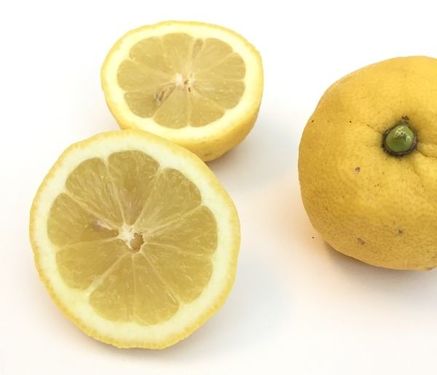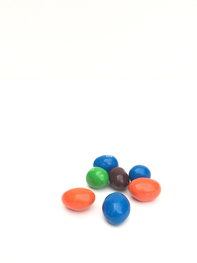|
If you do a search on the internet, you will find a myriad number of websites touting the benefits of drinking lemon water. Many of them are unsubstantiated by research. When I began drinking lemon water every morning (a few months ago), I started because:
a) I was impressed by what topical application of ascorbic acid was doing to my skin (see here for details) b) I have a lemon tree in my backyard and figured why not use them and see what happens? Drinking warm lemon water is legendary in the practice of Ayurveda. The fact that this is an age old practice and has consistently been praised for it's detoxifying abilities is a good start to why it might be worthwhile to cultivate this habit. However, I wanted to see what modern science has to say on this subject. I found this excellent summary by Dr. Alison Chen which looks pretty thorough in the vast body of papers and research that she has summarized in her article. I think making this change has added a new dimension to wellness for me. I drink the juice of about a quarter of a lemon diluted with warm water. Everyday (unless I am traveling). Below are the daily short term benefits I realize:
Final words: skin health is very tangibly linked with overall wellness, of both body and mind despite what most skin care companies would have you believe. There are no miracle drugs or products that can give you glowing skin. You need to cultivate good habits and discipline to enjoy great skin and I believe ascorbic acid is a good tool to have in your toolbox.
1 Comment
Unless it's fruit and vegetables.
I recently went on a team building event from work to a place where we baked some goodies as a team. One of the items we made was red velvet cake. I bit my tongue as we dumped a couple of tablespoons of the red dye into the dough. Did I do the right thing in not speaking up about the hazards of using artificial food coloring? I don't know. . . It seems there are two camps these days on food, bath and body ingredients - the alarmists a la Food Babe and the "I'm cool with parabens because that's the best thing there is to preserve things for 5 years without fearing icky mold and bacteria growth". Kind of like American politics conspicuous by the lack of a balanced point of view. Below is how I feel about artificial food coloring. I wrote this as a comment in response to a blog post from a lady who has her own natural products line. You can read her post here. While I commend the spirit with which you have written this article, I still think it is very important for consumers to become smarter in choosing both food and bath and body products. A couple of examples: artificial food coloring. There are now a ton of products that have food coloring. Three of these dyes that are used widely in the US have benzidene which a study published in an NIH paper shows to be a human and animal carcinogen. https://www.ncbi.nlm.nih.gov/pmc/articles/PMC2957945/ The FDA of course approves of this to be used because the concentration is too low to cause harm. Which is the same argument used to permit the use of lead acetate in a men's hair product to cover grey. There are scientific papers written that conclude there is NO safe level of exposure to lead. Although most of the Questionable ingredients are present in low concentrations, the lack of transparency in labeling products and the absence of audits in the bath and body industry, exposes consumers to risks - and given that the combination of multiple food and bath and body products consumed, concern about the cumulative impact of the effects of these substances on health is understandable. In my opinion, it is the responsibility of consumers to vet out what is in food and other products to ensure safety, ethical practices in mass manufacturing especially when it comes to children. The truth is we will never be able to isolate a health issue to a certain ingredient. But like you say, the way everything we put in our bodies can interact with each other, how they build up due to cumulative effects etc. are common sense concerns. I do agree that consumers must get smart about vetting out scientific studies from alarmist blogs or websites written by people who have no formal training or credibility in health or chemistry. Just because this needs more effort does not imply consumers can blindly consume if they have any regard for what they are putting in their bodies. This article in the Scientific American illustrates the impact consumers can have on changing the way big companies approach what they put in their products. https://www.scientificamerican.com/article/does-artificial-food-coloring-contribute-to-adhd-in-children/ Thanks for reading my long comment! So what do you think about artificial food coloring? As I wrote this comment, I realized that the key reason that I chose to start my own skin care line was really inspired by the concept of minimalism. I am not an alarmist - I did eat the red velvet cupcake - but I believe we need not resort to unwanted and un-needed things to make our food (including skin food) nutritious, beautiful, and tasty. Lastly, I want to leave you with this guide on food colorants by a then toxicology Ph.D. candidate: https://cspinet.org/sites/default/files/attachment/food-dyes-rainbow-of-risks.pdf |
|
|
© Saroya Natural 2023 | All rights reserved.
Website designed by Aadi M |
Contact Us |



 RSS Feed
RSS Feed